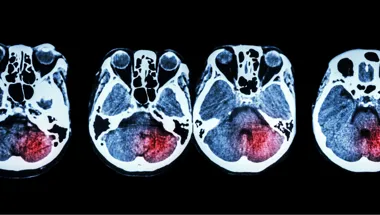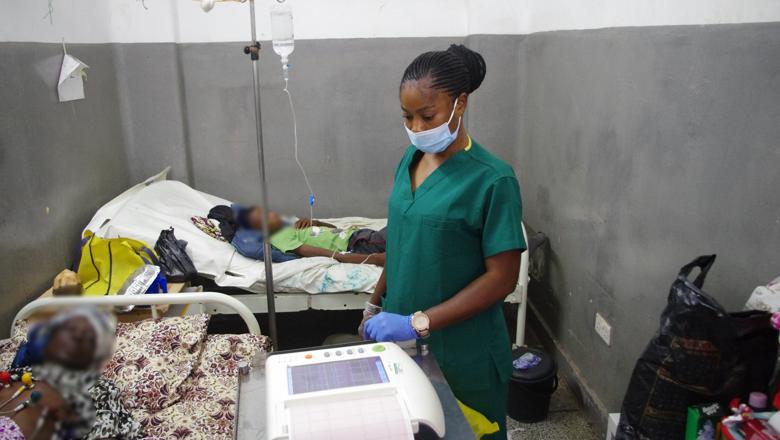
Biography
Dr Iain Marshall is a Clinical Reader in Population Health Science at King's College London, and an NHS GP and partner in South London. He is a population health scientist with diverse research interests including using artificial intelligence to support health decision-making, research synthesis, and stroke and cardiovascular disease prevention.
Iain leads the Solace-AI project, a Wellcome Trust-funded international collaboration developing AI-driven systems to rapidly synthesise research evidence during climate-related health emergencies. Working with partners across Africa, Europe, and North America, SOLACE-AI aims to provide decision-makers and humanitarian organisations with timely, locally relevant evidence syntheses — particularly focusing on historically underserved communities affected by extreme weather events. He co-leads the RobotReviewer project, which uses machine learning to automate systematic reviews.
Iain leads the Stroke research group at King's, where his research focuses on how social determinants of health influence stroke risk, access to care, and long-term outcomes in diverse populations. Through the South London Stroke Register, he investigates disparities in stroke incidence and outcomes by socioeconomic status, ethnicity, and age, with particular interest in understanding how these inequalities have evolved over time, and drivers of differential access to cardiovascular disease prevention and care. He serves as the GP member of the Intercollegiate Stroke Working Party and is was on the guideline development group for the 2023 National Clinical Guideline for Stroke. He is Chief Investigator of the South London Stroke Register and of the NIHR Programme Grant: Improving the lives of stroke survivors with data.
Iain supervises PhD students in applied AI in health, health data science, and stroke epidemiology.
Research

Primary Care Research Group
The Primary Care Research Group is a diverse team consisting of clinical and non-clinical primary care team researchers

Stroke Research Group
We are a multidisciplinary group (epidemiologists, stroke physicians, GPs, social scientists, statisticians, health informaticians and health economists) focused on stroke and with a wider interest in vascular long-term conditions and analytics.

Digital Health
Digital Health Research Group is a multidisciplinary group of informaticians, clinicians, psychologists and computer scientists, researching the role of data and knowledge in medical research and practice.

Health Inequalities, Societies and Systems
Central to our research is understanding and tackling the systemic and intersecting drivers of disparities in health over the life course such as racism, gender, crime, precarious livelihoods, environmental pollution, and inaccessible health care. We work collaboratively across the School of Life Course and Population Sciences to strengthen the theoretical aspects of population health research.

Improving the lives of stroke survivors with data
We aim to improve the lives of stroke survivors through a programme of stakeholder engagement, data collection, analysis and modelling, and use in practice.
Project status: Ongoing

Centre for Data Futures
Bringing together interdisciplinary experts to focus on participatory infrastructure throughout the life of data-reliant tools.

Climate & sustainability researchers at King’s
King's researchers working across climate and sustainability

Equitable and Inclusive Patient and Public Involvement in Stroke Research (EquIPS)
EquIPS will coproduce tools for researchers that will support the participation of all stroke survivors, including those with severe stroke related impairments.
Project status: Ongoing

KingsCAT: Capture and Analysis Tool for Social Media Research at King’s College London
KingsCAT is an instance of the open source 4CAT: Capture and Analysis Toolkit set up to support interdisciplinary and collaborative social media research.
Project status: Ongoing
News
Depression after stroke can seriously affect health for a decade, new research shows
People who experience depression following a stroke may face a higher risk of poor health and even death for up to a decade afterward, new research finds.

New project will develop AI tool to help respond to climate-change health emergencies
A new consortium led by Dr Iain Marshall at King’s College London has been awarded £4m from Wellcome to develop an AI tool for generating the information...

Study reveals urgent need for stroke prevention and care strategies in Sierra Leone
The research into common risk factors for stroke, type of stroke and outcomes of stroke in Sierra Leone uncovers a need for improved stroke care in the region

Events

Generative AI and the Future of Medical Care: an agenda for enquiry
The Centre for Data Futures and co-organisers discuss generative artificial intelligence challenges.
Please note: this event has passed.
MPH dissertation module
Research

Primary Care Research Group
The Primary Care Research Group is a diverse team consisting of clinical and non-clinical primary care team researchers

Stroke Research Group
We are a multidisciplinary group (epidemiologists, stroke physicians, GPs, social scientists, statisticians, health informaticians and health economists) focused on stroke and with a wider interest in vascular long-term conditions and analytics.

Digital Health
Digital Health Research Group is a multidisciplinary group of informaticians, clinicians, psychologists and computer scientists, researching the role of data and knowledge in medical research and practice.

Health Inequalities, Societies and Systems
Central to our research is understanding and tackling the systemic and intersecting drivers of disparities in health over the life course such as racism, gender, crime, precarious livelihoods, environmental pollution, and inaccessible health care. We work collaboratively across the School of Life Course and Population Sciences to strengthen the theoretical aspects of population health research.

Improving the lives of stroke survivors with data
We aim to improve the lives of stroke survivors through a programme of stakeholder engagement, data collection, analysis and modelling, and use in practice.
Project status: Ongoing

Centre for Data Futures
Bringing together interdisciplinary experts to focus on participatory infrastructure throughout the life of data-reliant tools.

Climate & sustainability researchers at King’s
King's researchers working across climate and sustainability

Equitable and Inclusive Patient and Public Involvement in Stroke Research (EquIPS)
EquIPS will coproduce tools for researchers that will support the participation of all stroke survivors, including those with severe stroke related impairments.
Project status: Ongoing

KingsCAT: Capture and Analysis Tool for Social Media Research at King’s College London
KingsCAT is an instance of the open source 4CAT: Capture and Analysis Toolkit set up to support interdisciplinary and collaborative social media research.
Project status: Ongoing
News
Depression after stroke can seriously affect health for a decade, new research shows
People who experience depression following a stroke may face a higher risk of poor health and even death for up to a decade afterward, new research finds.

New project will develop AI tool to help respond to climate-change health emergencies
A new consortium led by Dr Iain Marshall at King’s College London has been awarded £4m from Wellcome to develop an AI tool for generating the information...

Study reveals urgent need for stroke prevention and care strategies in Sierra Leone
The research into common risk factors for stroke, type of stroke and outcomes of stroke in Sierra Leone uncovers a need for improved stroke care in the region

Events

Generative AI and the Future of Medical Care: an agenda for enquiry
The Centre for Data Futures and co-organisers discuss generative artificial intelligence challenges.
Please note: this event has passed.
MPH dissertation module
